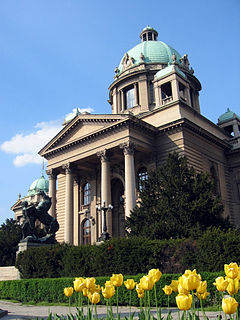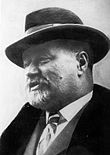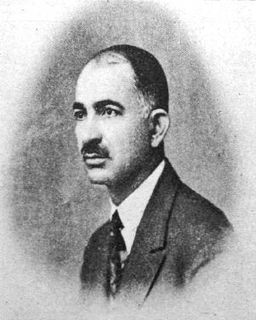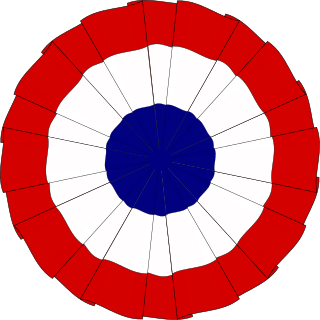
The Democratic-Republican Party was an American political party formed by Thomas Jefferson and James Madison around 1792 to oppose the centralizing policies of the new Federalist Party run by Alexander Hamilton, who was Secretary of the Treasury and chief architect of George Washington's administration. From 1801 to 1825, the new party controlled the presidency and Congress as well as most states during the First Party System. It began in 1791 as one faction in Congress and included many politicians who had been opposed to the new constitution. They called themselves Republicans after their political philosophy, republicanism. They distrusted the Federalist tendency to centralize and loosely interpret the Constitution, believing these policies were signs of monarchism and anti-republican values. The party splintered in 1824, with the faction loyal to Andrew Jackson coalescing into the Jacksonian movement, the faction led by John Quincy Adams and Henry Clay forming the National Republican Party and some other groups going on to form the Anti-Masonic Party. The National Republicans, Anti-Masons, and other opponents of Andrew Jackson later formed themselves into the Whig Party.

The Federalist Party, referred to as the Pro-Administration party until the 3rd United States Congress as opposed to their opponents in the Anti-Administration party, was the first American political party. It existed from the early 1790s to the 1820s, with their last presidential candidate being fielded in 1816. They appealed to business and to conservatives who favored banks, national over state government, manufacturing, and preferred Britain and opposed the French Revolution.
Federal or foederal (archaic) may refer to:
The history of Montenegro begins in the early Middle Ages, into the former Roman province of Dalmatia that forms present-day Montenegro. In the 9th century, there were three principalities on the territory of Montenegro: Duklja, roughly corresponding to the southern half, Travunia, the west, and Rascia, the north. In 1042, Stefan Vojislav led a revolt that resulted in the independence of Duklja and the establishment of the Vojislavljević dynasty. Duklja reached its zenith under Vojislav's son, Mihailo (1046–81), and his grandson Bodin (1081–1101). By the 13th century, Zeta had replaced Duklja when referring to the realm. In the late 14th century, southern Montenegro (Zeta) came under the rule of the Balšić noble family, then the Crnojević noble family, and by the 15th century, Zeta was more often referred to as Crna Gora. Large portions fell under the control of the Ottoman Empire from 1496 to 1878. Parts were controlled by Venice. From 1515 until 1851 the prince-bishops (vladikas) of Cetinje were the rulers. The House of Petrović-Njegoš ruled until 1918. From 1918, it was a part of Yugoslavia. On the basis of an independence referendum held on 21 May 2006, Montenegro declared independence on 3 June of that year.
"Oj, svijetla majska zoro" is the national anthem of Montenegro adopted in 2004. Before its adoption, it was a popular folk song with many variations of its text. The oldest one is dated to the 2nd half of the 19th century, known as "Oh, Bright Dawn of Heroism, oh!", a popular Montenegrin folk song.

The Era of Good Feelings marked a period in the political history of the United States that reflected a sense of national purpose and a desire for unity among Americans in the aftermath of the War of 1812. The era saw the collapse of the Federalist Party and an end to the bitter partisan disputes between it and the dominant Democratic-Republican Party during the First Party System. President James Monroe strove to downplay partisan affiliation in making his nominations, with the ultimate goal of national unity and eliminating parties altogether from national politics. The period is so closely associated with Monroe's presidency (1817–1825) and his administrative goals that his name and the era are virtually synonymous.

The First Party System is a model of American politics used in history and political science to periodize the political party system that existed in the United States between roughly 1792 and 1824. It featured two national parties competing for control of the presidency, Congress, and the states: the Federalist Party, created largely by Alexander Hamilton, and the rival Jeffersonian Democratic-Republican Party, formed by Thomas Jefferson and James Madison, usually called at the time the Republican Party. The Federalists were dominant until 1800, while the Republicans were dominant after 1800.

The Prime Minister of Montenegro, is the head of the Government of Montenegro. The role of the Prime Minister is to direct the work of the Government, and to submit to the Parliament the Government's Program, including a list of proposed ministers. The resignation of the Prime Minister will cause the fall of the Government.
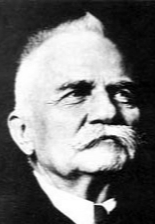
Constitutional Assembly elections were held in the Kingdom of Serbs, Croats and Slovenes on 18 March 1923. The seats were divided up by the political borders which existed before the Kingdom's formation and distributed using the population statistics of 1910.

Gavro Vuković, also known as Vojvoda Gavro, was a senator of the Principality of Montenegro, a military commander, Yugoslav politician and writer.

The Greens were a group of Montenegrin nationalists which originated from the membership of True People's Party, most notable for instigating the Christmas Uprising of 1919 in an attempt to prevent the annexation of Montenegro into the unitary Kingdom of Yugoslavia. Greens were supporters of the Petrović-Njegoš dynasty, which was dethroned after the World War I, and fought for the establishment of Montenegro as either an independent state, or a federal unit within the Yugoslav federation. Following the defeat in Christmas uprising, Greens continued with guerrilla warfare until 1929. The motto of the movement, as inscribed on their flag, was "For the Right, Honour and Freedom of Montenegro".

The Italian governorate of Montenegro existed from October 1941 to September 1943 as an occupied territory under military government of Fascist Italy during World War II. Although the Italians had intended to establish a quasi-independent Montenegrin kingdom, these plans were permanently shelved after a popular uprising in July 1941. Following the Italian surrender in September 1943, the territory of Montenegro was occupied by German forces which withdrew in December 1944.
Novica Radović was a Montenegrin politician.

Parliamentary elections were held in the Kingdom of Serbs, Croats and Slovenes on 11 September 1927. The People's Radical Party remained the largest faction in Parliament, winning 112 of the 315 seats. As it turned out, they were the last relatively free elections ever held in the 1918-1992 incarnation of Yugoslavia.

Parliamentary elections were held in Yugoslavia on 1 December 1938. The result was a victory for the governing Yugoslav Radical Union, which won 306 of the 373 seats in Parliament.
The Federalist Era in American history ran from 1788-1800, a time when the Federalist Party and its predecessors were dominant in American politics. During this period, Federalists generally controlled Congress and enjoyed the support of President George Washington and President John Adams. The era saw the creation of a new, stronger federal government under the United States Constitution, a deepening of support for nationalism, and diminished fears of tyranny by a central government. The era began with the ratification of the United States Constitution and ended with the Democratic-Republican Party's victory in the 1800 elections.

